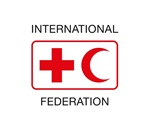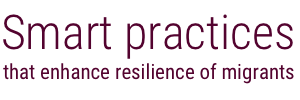Closely monitoring rights violations and engaging in advocacy to ensure compliance.
The Refugee Consortium of Kenya (RCK) was set up in 1998 to respond to a gap in legal aid to migrants. Its activities concentrate on three things: (1) advocacy and policy development, (2) legal aid and (3) research and monitoring of compliance. This case study focuses on the Consortium’s protection monitoring scheme. The protection monitoring scheme uses a volunteer network and a pool of experts to monitor rights violations and flag compliance issues in camps and along migration trails. The refugee consortium has trained migrants in camps to identify and record violations of rights. This network of volunteers and a pool of experts across the country report protection concerns to the organization. The organization prioritizes and raises violations with the government using a range of advocacy interventions. The advocacy has proven effective due to the combination of clear evidence generated by the protection monitoring system and a deep understanding of the policy landscape and network amongst policy makers and practitioners across national, regional and local institutions. In order to improve overall awareness and in response to violations, the organization is providing sensitization workshops for policy makers and practitioners to improve compliance with the Refugee Act. Their position has enabled them to raise systematic violation of migrants rights which has led to the termination of a contract with a government official. This work and their broader advocacy work contributed to the adoption of the Refugee Act in November 2006, believed by many to be potentially the most important milestone in the management of refugee affairs in Kenya. More recently the Consortium was directly engaged in a review of the Act.
In 2015, Refugee Consortium of Kenya worked with 8,304 people of concern.
Design. [P1] protects the regulatory needs of migrants in Kenya; [P4] recognizes and protects the rights of all migrants in Kenya.
Implementation. [P5] Links protection of rights with advocacy actions.
Programme. The service is in response to displaced populations forced to move into Kenya.
- In Kenya concerns over national security make work on refugee rights politically challenging.
- The lack of an asylum policy in Kenya limits the legal tools available to the scheme.
- More emphasis is being placed on areas with high records of migrant rights violation, in terms of training government officials.
Smart practices
Smart practices report and database survey
About the report
People migrate in pursuit of a better life for themselves and their families. As described in the International Federation of Red Cross and Red Crescent Societies’ (IFRC) Policy on Migration, “migrants are persons who leave or flee their habitual residence to go to new places – usually abroad – to seek opportunities or safer and better prospects.
Read more
About the International Federation

